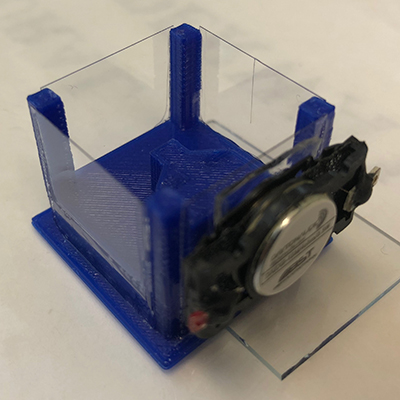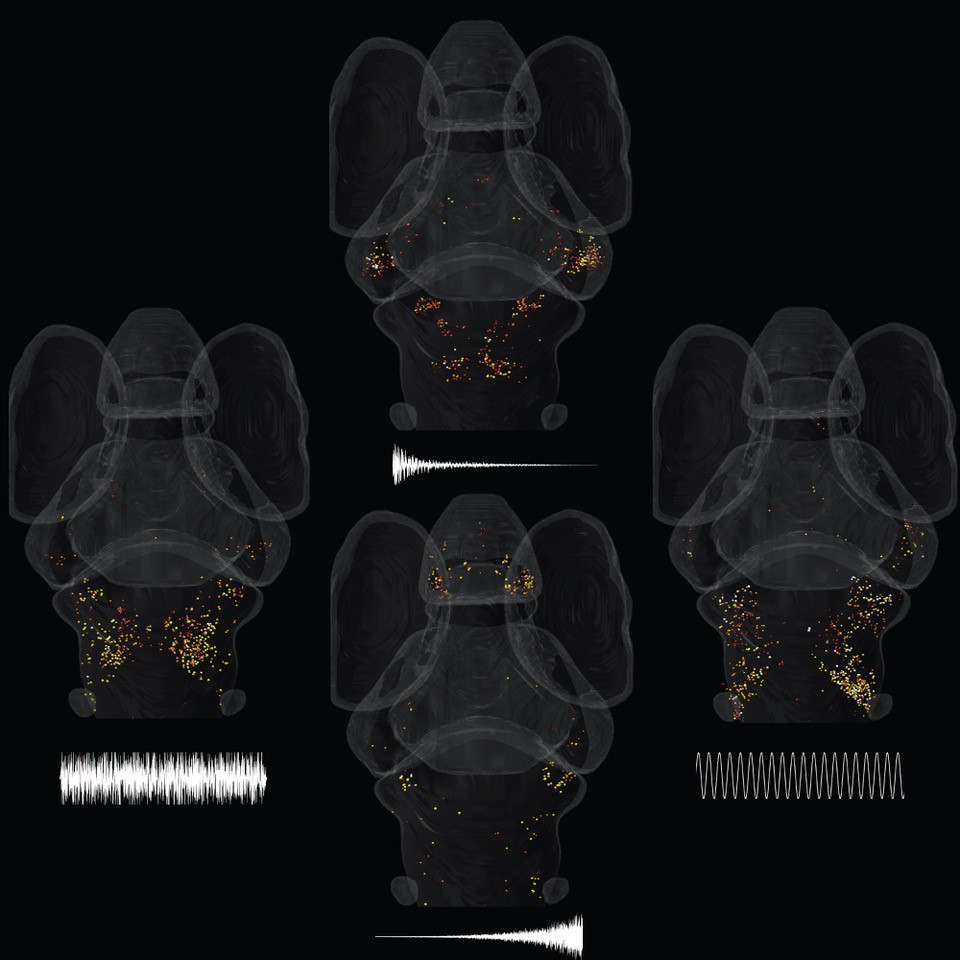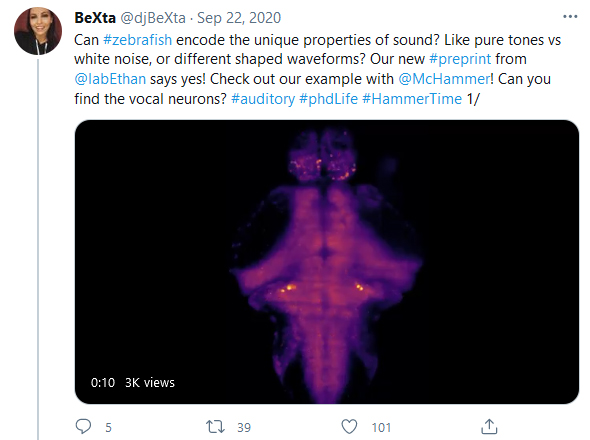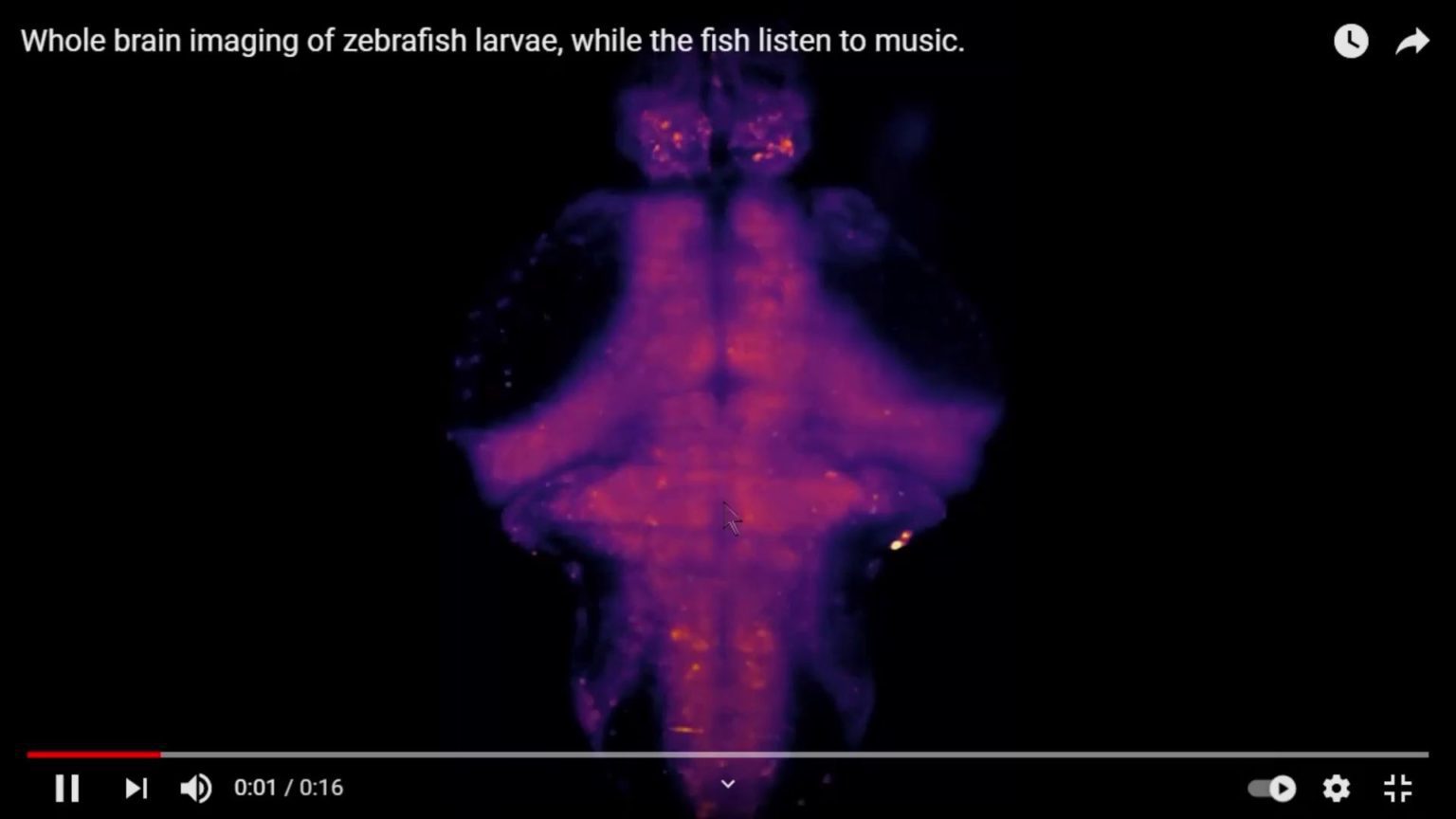A ‘Fish DJ’ at the University of Queensland, Australia has used her knowledge of cool beats to understand brain networks and hearing in baby fish.
In this latest research, which has been published in Current Biology, the DJ-turned-researcher used her acoustic experience to design a speaker system for zebrafish larvae and discovered that their hearing is considerably better than originally thought.
PhD candidate Rebecca Poulsen – known as BeXta in her DJ-ing days – said that combining this new speaker system with whole-brain imaging showed how larvae can hear a range of different sounds they would encounter in the wild.
“For many years my music career has been in music production and DJ-ing — I’ve found underwater acoustics to be a lot more complicated than air frequencies,” said Ms Poulsen.
“It is very rewarding to be using the acoustic skills I learnt in my undergraduate degree, and in my music career, to overcome the challenge of delivering sounds to our zebrafish in the lab.

“I designed the speaker to adhere to the chamber the larvae are in, so all the sound I play is accurately received by the larvae, with no loss through the air.”
Ms Poulsen said people did not often think about underwater hearing, but it was crucial for fish survival – to escape predators, find food and communicate with each other.
Ms Poulsen worked with Associate Professor Ethan Scott, who specialises in the neural circuits and behaviour of sensory processing, to study the zebrafish and find out how their neurons work together to process sounds.
The tiny size of the zebrafish larvae allows researchers to study their entire brain under a microscope and see the activity of each brain cell individually.
“Using this new speaker system combined with whole-brain imaging, we can see which brain cells and regions are active when the fish hear different types of sounds,” said Dr Scott.

The researchers are testing different sounds to see if the fish can discriminate between single frequencies, white noise, short sharp sounds and sound with a gradual crescendo of volume.
These sounds include components of what a fish would hear in the wild, like running water, other fish swimming past, objects hitting the surface of the water and predators approaching.
“Conventional thinking is that fish larvae have rudimentary hearing, and only hear low-frequency sounds, but we have shown they can hear relatively high-frequency sounds and that they respond to several specific properties of diverse sounds,” explained Dr Scott.
“This raises a host of questions about how their brains interpret these sounds and how hearing contributes to their behaviour.”
Ms Poulsen has played many types of sounds to the larvae to see which parts of their brains light up, but also some music – including MC Hammer’s U Can’t Touch This – that even MC Hammer himself enjoyed, liking Rebecca's Tweet and re-tweeting her research.

The research was funded by the Australian Research Council, the National Health and Medical Research Council, the Simons Foundation Autism Research Initiative, and supported by the United States National Institute of Neurological Disorders and Stroke of the Institutes of Health under Award Number R01NS118406. The content is solely the responsibility of the authors and does not necessarily represent the official views of the National Institutes of Health.








